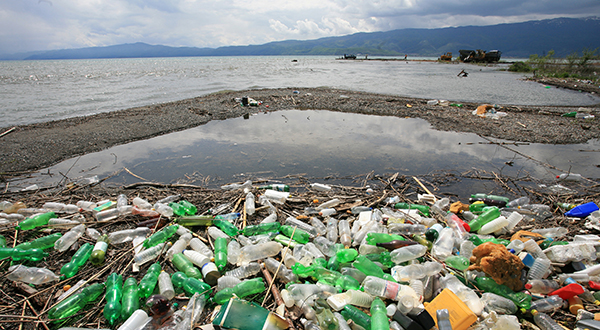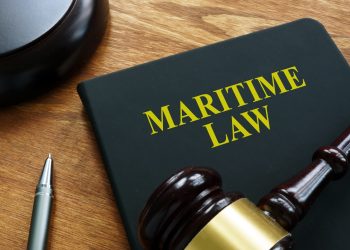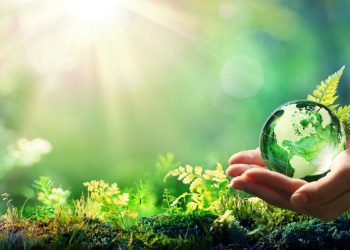An Ellen MacArthur Foundation report predicts that by 2050, there’ll be more plastic in the ocean than fish. One result is so-called ocean “garbage patches” like the Great Pacific Garbage Patch, which scientists have estimated to be about twice the size of Texas (See a NOAA map of the garbage patches here). An astounding 90% of this floating garbage pile is plastic, which should alarm us; but it shouldn’t surprise us considering every piece of plastic created still exists. It is a material that the Earth cannot digest and thus the way we use it and dispose of it must be carefully considered.Unfortunately, according to the Foundation’s report, only 14% of plastic packaging is collected for recycling globally, and that 95% of the value of plastic packaging material is lost to the economy, or around $80 to $120 billion a year.

I’m not suggesting that we suddenly stop using plastic. That would be both impossible and impractical. In fact, there are great benefits to plastic. Plastic is a resource that cross-cuts every industry imaginable and on some levels can even help protect the environment by containing hazardous waste and preserving the life of machines and other products that would otherwise lose their ability to function, or corrode and be discarded. Plastic packaging can extend the shelf life of food that would otherwise be wasted and its light weight can also help reduce the amount of fuel needed to transport goods. In the medical industry antimicrobial plastic helps to stop the spread of diseases in hospitals and can both repel and kill bacteria on surfaces highly trafficked by patients and doctors.
Yet, the disadvantages of plastic use are severe and although we have the ability to drastically reduce our plastic production, consumption and waste, we are not in the habit of doing so. Whatever happened to recycling? Reduction relies on human behaviour, but humans are inherently lazy. It is much easier to dump everything into one bin than deal with sorting your glasses, cardboards, plastics, papers, compostable food and materials, and general rubbish.
However, it also important to note that it doesn’t always come down to individual choice. Often, infrastructure does not make recycling an easy option, which is why policymakers should strongly consider the benefits of creating comprehensive recycling infrastructure and incentives to engage in recycling. It’s hard enough to get people to recycle when ready-made clear recycling systems are in place, so when the infrastructure is confusing, inefficient or seemingly unattainable, the likelihood of recycling is drastically decreased.
Another issue is that waste quickly becomes something that is out of sight, out of mind. Most of us do not see where our rubbish goes. You take out the trash, a truck comes to collect it and poof—you never think about it again, until you start to see plastic bottles in the ocean and realise you should have taken those extra ten steps to put your bottle in the recycling bin.
The reality is that we’re not going to stop using plastic, but we can and we should start using it more responsibly. We can minimise our economic losses and environmental impacts by putting responsibility before convenience. Change the way you use, consume and discard plastic and convince others to as well so that we can collectively mitigate environmental and economic losses. This can be done by making lifestyle decisions that are equally beneficial to the consumers, the environment and the economy. For example, instead of buying a disposable plastic water bottle every day, you can buy a reusable one. This will both save you money and reduce potential pollution.
Moreover, it is the responsibility of governments to create and enforce laws that provide awareness and give people economic incentives to change their behaviour. A positive example of this is the plastic bag ban. The first city to implement a ban was Dhaka in 2002 in response to drain blockages caused by plastic bags responsible for flooding. This increased the spread of water-borne diseases and put pressure on infrastructure. In 2003, a surcharge on plastic bags in Ireland had a significant impact on consumer behaviour—the public almost unanimously opted for reusable totes in favour of plastic bags. Today, we continue to see a number of cities jump on board to ban or tax the bag in Rwanda, Australia, South Africa, Kenya, China, Italy, the United States, France and several others. Recently, England added a £0.05 surcharge on plastic bags and immediately saw an 85%drop in usage.
Another important legislative trend fighting plastic pollution is the microbead ban. These tiny pieces of plastics used in cosmetic products to exfoliate are so small that they cannot be filtered out of our water systems, meaning they end up in our rivers, lakes and oceans. Even worse, we end up eating them in our seafood. According to a Greenpeace analysis of 58 international studies, 170 types of widely consumed seafood products were found to contain microplastics. So if the idea of eating plastic makes you uncomfortable, you should push your government to reconsider selling products containing microbeads. One of the first politicians to bring attention to the issue was the Dutch Minister of Environment, Jacqueline Cramer in 2009 . Since then, Denmark has been pushing for a microbead ban in Europe; and in 2015 President Obama signed a bill prohibiting products containing microbeads in the United States.
Over the last decade, the environmental degradation caused by plastic has become increasingly apparent. In response, we have seen positive changes in legislation that aim to minimise and reduce our plastic usage in order to protect our marine ecosystems. However, our plastic habit is still unsettling and we must continue to push ourselves and our neighbours to change the way we use and dispose of it. On top of this, we must ensure that our government leaders and laws reflect responsible practice. Old habits die hard, but when we look at the damage that plastic causes to ourselves and our planet, it’s evident that it is a habit well worth breaking.
So, if you don’t want to see plastic floating in the waters on your next beach holiday—and I truly hope you don’t – act. It’s difficult to justify the dissatisfaction of those who choose inaction.
Written by Grace Hanley, OECD Environment Directorate
Above article has been initially published at OECD Insights and is reproduced here with author’s kind permission.
The views presented hereabove are only those of the author and not necessarily those of GREEN4SEA and are for information sharing and discussion purposes only.
[divider]
About Grace Hanley, OECD Environment Directorate
 Grace Hanley is currently finalising her master’s degree in International Affairs at the American University of Paris (AUP) and is working on a thesis considering access to potable water. In addition, she is currently positioned as a Communications Intern in the Environment Directorate of the Organisation for Economic Co-operation and Development (OECD), where she is working on researching and campaigning for environmental issues, namely water and biodiversity. She graduated from the Catholic University of America in 2009 with a bachelor’s degree in World Politics and a Minor in French. She is strongly interested in environmental and human rights policies, with a focus on potable water and sanitation
Grace Hanley is currently finalising her master’s degree in International Affairs at the American University of Paris (AUP) and is working on a thesis considering access to potable water. In addition, she is currently positioned as a Communications Intern in the Environment Directorate of the Organisation for Economic Co-operation and Development (OECD), where she is working on researching and campaigning for environmental issues, namely water and biodiversity. She graduated from the Catholic University of America in 2009 with a bachelor’s degree in World Politics and a Minor in French. She is strongly interested in environmental and human rights policies, with a focus on potable water and sanitation




































































